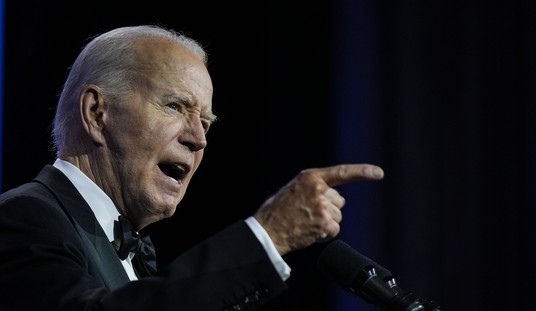ABC News says: “Net Neutrality: How President Obama Wants to Rescue the Internet”. Business Insider says, “President Obama wants to reclassify the internet as a utility, according to a new statement from the White House. This would allow the Federal Communications Committee to enforce heavier restrictions on it and protect net neutrality.”
Among the four basic points of the president’s plan are no blocking websites for certain users, no throttling (creating a fast and slow lane), more transparency between consumers and Internet service providers and no paid prioritization to move to the front of the line.
Michael Powell, president and CEO of the National Cable and Telecommunications Association and the former chairman of the FCC, said in a statement he was surprised Obama had waded into the debate. Powell’s group is the primary lobbying force of the cable industry.
“We are stunned the President would abandon the longstanding, bipartisan policy of lightly regulating the Internet and call for extreme Title II regulation,” Powell said. “The cable industry strongly supports an open Internet, is building an open Internet, and strongly believes that over-regulating the fastest growing technology in our history will not advance the cause of Internet freedom.”
This issue will be cast in terms of the cable companies vs the world, between unregulated oppression and regulated liberty. But that may be, as the president is fond of saying, ‘a false choice’. One major reason why ‘freedom through government’ doesn’t always work as advertised is regulatory capture.
Regulatory capture is a form of political corruption that occurs when a regulatory agency, created to act in the public interest, instead advances the commercial or special concerns of interest groups that dominate the industry or sector it is charged with regulating. Regulatory capture is a form of government failure; it creates an opening for firms to behave in ways injurious to the public (e.g., producing negative externalities). The agencies are called “captured agencies”.
Recently Rolling Stone described how a major bank sold junk mortgages as financial instruments in the lead-up to the financial meltdown and bought its way out of legal trouble by paying the Obama administration nine billion dollars.
Fleischmann is the central witness in one of the biggest cases of white-collar crime in American history, possessing secrets that JPMorgan Chase CEO Jamie Dimon late last year paid $9 billion (not $13 billion as regularly reported – more on that later) to keep the public from hearing.
Back in 2006, as a deal manager at the gigantic bank, Fleischmann first witnessed, then tried to stop, what she describes as “massive criminal securities fraud” in the bank’s mortgage operations.
Thanks to a confidentiality agreement, she’s kept her mouth shut since then. “My closest family and friends don’t know what I’ve been living with,” she says. “Even my brother will only find out for the first time when he sees this interview.”
Six years after the crisis that cratered the global economy, it’s not exactly news that the country’s biggest banks stole on a grand scale. That’s why the more important part of Fleischmann’s story is in the pains Chase and the Justice Department took to silence her.
She was blocked at every turn: by asleep-on-the-job regulators like the Securities and Exchange Commission, by a court system that allowed Chase to use its billions to bury her evidence, and, finally, by officials like outgoing Attorney General Eric Holder, the chief architect of the crazily elaborate government policy of surrender, secrecy and cover-up. “Every time I had a chance to talk, something always got in the way,” Fleischmann says.
But the bank could talk. “It goes without saying that the ordinary citizen who is the target of a government investigation cannot simply pick up the phone, call up the prosecutor in charge of his case and have a legal proceeding canceled. But Dimon did just that. ‘And he didn’t just call the prosecutor, he called the prosecutor’s boss,’ Fleischmann says. According to The New York Times, after Dimon had already offered $3 billion to settle the case and was turned down, he went to Holder’s office and upped the offer, but apparently not by enough.”
The cable companies are no angels. But you can always improve things for the worse. The other day my wife was telling me about Megan Fox’s plastic surgery. She said “why should such a beautiful woman tinker with her face?” When you are as beautiful as Megan Fox the chances surgery will improve appearances is small while the risk of ruining your face is relatively big. How much better can it get when you are already Megan Fox? On the other hand, if you are plug ugly or disfigured to begin with, the chance you will improve your appearance with plastic surgery is large while the odds you can make things worse are small because there’s nowhere to go but up.
This is precisely the rule of thumb for deciding when government intervention is appropriate: is there a clear and compelling case for turning it over to a bureaucrat? If it’s bad enough, take the chance.
But doing it to improve things because a politician promised to make it better is not always a good move. Recently someone unearthed a video one of Obamacare’s architects rejoicing in the fact that you could persuade people to believe a bureaucracy could give you something for nothing.
Massachusetts Institute of Technology Professor Jonathan Gruber was, by most accounts, one of the key figures in constructing the Affordable Care Act, better known as Obamacare. He helped designed the Massachusetts health care law on which it was modeled, assisted the White House in laying out the foundation of the law, and, according to The New York Times, was eventually sent to Capitol Hill “to help Congressional staff members draft the specifics of the legislation.” He provided the media with a stream of supportive quotes, and was paid almost $400,000 for his consulting work.
Jonathan Gruber, in other words, knows exactly what it took to get the health care law passed.
And that’s why you should take him seriously when he says, in the following video, that it was critical to not be transparent about the law’s costs and true effects, and to take advantage of the “stupidity of the American voter” in order to get it passed:
[jwplayer mediaid=”40352″]
You’ve got to admit, Gruber’s right.
There is a lot that is broken about Internet service provision. But how broken is it? Megan Fox broken? Renée Zellweger broken? Or JPMorgan Chase broken? So do you want president Obama to ‘save the Internet’? It depends on how bad you think the Internet is now, and how much better you believe it will become when Obama saves it.
Recently purchased by readers:
Brave New World and Brave New World Revisited, Aldous Huxley with foreword by Christopher Hitchens
Hell to Pay: Operation Downfall and the Invasion of Japan, 1945-1947
30 Count – Lavazza K-Cup Variety Pack Sampler, For Keurig K-Cup Brewers
Zippo Brushed Brass 1941 Replica Lighter
The Wind Rises (2-Disc Blu-ray +DVD Combo Pack)
Defense of Japan 1945 (Fortress), if Japan had been invaded
Ocean Beauty Seafoods Salmon Jerky, 3.0oz (85g) (Pack of 2) (Original)
The Basics of Web Hacking: Tools and Techniques to Attack the Web, [Kindle Edition]
Recommended:
The Peripheral, [Kindle Edition], William Gibson
Count Zero, [Kindle Edition], William Gibson
Thin Air, Encounters in the Himalayas [Kindle Edition]
Casio Men’s AWGM100-1ACR “Atomic G Shock” Watch
Brookside Dark Chocolate Covered Goji and Raspberries, 7-Ounce (Pack of 4)
Lasko 5307 Oscillating Ceramic Tower Heater, 16-Inch
The Undocumented Mark Steyn [Kindle Edition]
Did you know that you can purchase some of these books and pamphlets by Richard Fernandez and share them with you friends? They will receive a link in their email and it will automatically give them access to a Kindle reader on their smartphone, computer or even as a web-readable document.
The War of the Words for $3.99, Understanding the crisis of the early 21st century in terms of information corruption in the financial, security and political spheres
Rebranding Christianity for $3.99, or why the truth shall make you free
The Three Conjectures at Amazon Kindle for $1.99, reflections on terrorism and the nuclear age
Storming the Castle at Amazon Kindle for $3.99, why government should get small
No Way In at Amazon Kindle $8.95, print $9.99. Fiction. A flight into peril, flashbacks to underground action.
Storm Over the South China Sea $0.99, how China is restarting history in the Pacific
Tip Jar or Subscribe or Unsubscribe to the Belmont Club










Join the conversation as a VIP Member